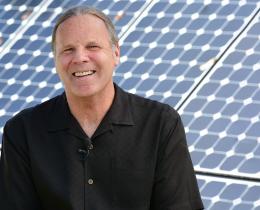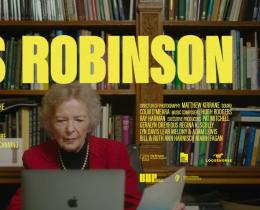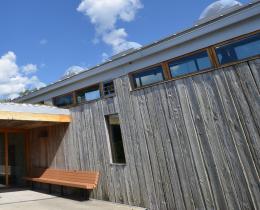As the global climate community converges in Brazil for the 30th United Nations Climate Change Conference (COP30), the Omega Center for Sustainable Living (OCSL) is stepping into a pivotal moment.
Climate change is causing devastation globally and being felt intensely among Indigenous communities and African nations. And once again, Omega is proud to support these voices, this time by cosponsoring a side event at COP with our Ghanaian partners and by providing access to the conference for climate leaders from Indigenous peoples to Historically Black Colleges and Universities.
At Omega, it is our commitment to use our UN accreditation in support of communities that bring important local knowledge and perspectives, yet are frequently marginalized in climate-solutions conversations—even though they often are the most impacted.
Why COP30 Matters — and Why Now
What is COP? “COP” stands for Conference of the Parties—comprising nearly 200 nations that are signatories to the UN Framework Convention on Climate Change (UNFCCC). Every year, these nations come together to assess progress, negotiate new goals, and commit to deeper climate actions. At COP30 in November, they will present updated national pledges, take stock of the progress toward the goals in limiting global warming, and debate climate finance, adaptation, loss, and damage.
COP30 carries special urgency: We are nearly a decade beyond the Paris Agreement’s adoption, and the science is clearer than ever about the shrinking window to avoid catastrophic warming.
“The clock is ticking. We are in the fight of our lives … and we are losing,” says Jordan Dunbar of the BBC World Service. “Greenhouse gas emissions keep growing, global temperatures keep rising, and our planet is reaching tipping points that will make climate damage irreversible.”
The stakes could not be higher. And COP30, hosted in the Amazon region, has the potential to refocus forests, biodiversity, and Indigenous rights in the climate conversation.
Yet this year’s conference also faces intense logistical, political, and financial challenges. Hotel prices in Belém have soared, raising serious concerns about equitable attendance—especially for delegates from developing nations.
Omega’s Role at COP30: Side Event + Delegate Sponsorship
While the high-level negotiations at the conference focus on policy and national commitments, side events have become a powerful parallel space for innovation and grassroots action. The side events give a platform to Indigenous peoples, youth, women, and small-island or African nations—who may have limited access to official negotiation rooms.

The UN received 1,419 applications for COP30 side events this year—a record number. Of these, 332 side events were selected.
Omega is excited to be co-sponsoring one of those side events in collaboration with Hussein Kassim of Ghana, his Centre for Climate and Sustainability Empowerment (CCSE), and Ghana’s Environmental Protection Authority (EPA). Our other partners for the event include a coalition of climate experts who will travel to Brazil on behalf of the country of Madagascar.
“Side events are not bound by the procedural rules of the negotiating floor,” Hussein says. “This freedom allows participants to share ideas, test new models, and engage across sectors in a more dynamic and human way.”
The session, titled “From Planning to Implementation: Showcasing Ghana & Madagascar’s NAP Process,” will explore how National Adaptation Plans (NAPs) are being translated from vision into impact.
Key elements of the session include:
| 🍃 | A spotlight on Ghana’s adaptation trajectory, with Dr. Antwi Boasiako (National Adaptation Plan Coordinator and United Nations negotiator) presenting on progress, gaps, and aspirations. |
| 🍃 | A presentation from Groupe Thématique Changement Climatique (GTCC) in Madagascar, detailing the coalition’s role and challenges. |
| 🍃 | A moderated dialogue among government agencies, civil society, academia, and development partners around three core questions: |
- How are adaptation priorities being mainstreamed in planning and budgets?
- To what extent are vulnerable and marginalized communities being reached?
- What additional finance, data systems, and institutional capacities are needed?
By bringing voices from Ghana and Madagascar into the negotiation context, this event seeks to bridge the gap between national climate plans and on-the-ground execution—a critical, often underrepresented dimension of climate discourse.
Delegate Sponsorship: Amplifying Emergent Voices
In addition, Omega is accrediting and sponsoring a cohort of delegates, including Hussein Kassim; Felicia M. Davis and Yolanda Edrea Davis of the Historically Black Colleges and Universities Green Fund team; and Dr. Frances Roberts-Gregory, a researcher focused on feminist climate policy and gender justice. Two Indigenous Omega delegates have also confirmed attendance: Daniel Santi, a climate specialist and ancestral leader in the Kichwa community of Sarayaku, Ecuador, and Maryanne Rimbao, founder of the Humanity and Nature Indigenous Women's Association of Papua New Guinea.
Each delegate will attend negotiations, host and present at side events and press conferences, connect with global counterparts, advocate for their communities, and bring home insights to share. Their presence reflects Omega’s commitment to enabling just access, diversity, and representation in climate governance.
Urgency, Justice, and Regeneration
COP30 is not just another climate conference—it is an inflection point. If we fail to deliver on implementation, climate finance, capacity building, and equity, the window may close forever.
Omega sees the climate crisis as deeply intertwined with justice, dignity, and systems change. Our role is to bring regenerative demonstration, relational bridges, and capacity tools into this global moment. Whether through the Eco MachineTM, youth education partnerships, or global engagement at the UN, we know the future demands more than talk.



